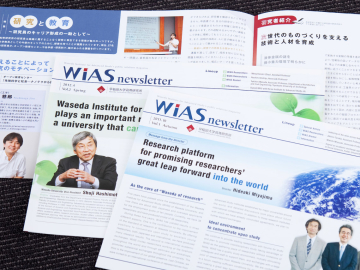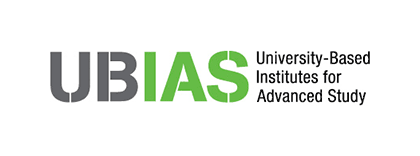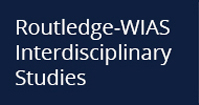WIAS Seminar Series “Humanities in the Anthropocene” Vol. 3
Open Lecture – Mountains in the Anthropocene: Considering the Historical Research on the Mountainous Regions of Central Asia (Mar. 7)
Overview
This seminar series is part of the Humanities in the Anthropocene project begun by the Waseda Institute for Advanced Study (WIAS) in October 2021. This project aims to be a place for cross-disciplinary dialogue based on the shared Anthropocene concept, an experiment in exploring new potential in the humanities by linking previously siloed specialized knowledge.
The third lecture in this series will be presented by AKIYAMA, Tetsu.
It goes without saying that in recent years, environmental factors in regional studies, including historical studies, have attracted attention. Such an environmental historical approach has also been applied to regional studies in Central Asia, here meaning five republics of the former Soviet Union (Kazakhstan, Kyrgyzstan, Uzbekistan, Tajikistan, and Turkmenistan) and Xinjiang, China. For example, in recent years, the Aral Sea issue and other large-scale projects for remodeling nature implemented from the closing years of the Russian Empire through the Soviet era have come to light. In this way, rivers, lakes, and (steppes) have come to attract attention, while the mountainous regions that extend into southern Central Asia have not.
In this lecture, I would like to consider the interrelationship between people and mountains, using the recent history of nomadic people living in the Tian Shan Mountains as a motif, something which I have been working on up to now.
Speaker
AKIYAMA, Tetsu
Associate Professor, WIAS
Born in 1979. Graduated from Hokkaido University Graduate School. Doctor (Academic). Associate professor at The Waseda Institute for Advanced Study(WIAS).
After working as a research fellow at the Japan Society for the Promotion of Science (PD) (University of Tokyo, Toyo Bunko) and the Organization for Islamic Area Studies of Waseda University, he assumed his current position in 2019. He specializes in the modern history of Central Asia, particularly in the state-building process and survival strategies of nomadic people in mountainous regions.
His recent major works include The Qїrghїz Baatïr and the Russian Empire: A Portrait of a Local Intermediary in Russian Central Asia (Leiden; Boston: Brill, 2021) and “What Have Eurasian Pastoralists Sought from Leaders? Blood and Power” in CHIMEDYN Shinjilt/CHIDA Tetsuro (eds.) (Exploring Pastoralism in the Humanities) (Nagoya University of Foreign Studies Press, 2021).
Date/Time
March 7, 2022 (Mon.), starts at 10:00 (JST)
Location
Online meeting via Zoom (prior registration required)
Program
10:00 – 10:05 Opening Address
10:05 – 11:00 Mountains in the Anthropocene: Considering the Historical Research on the Mountainous
Regions of Central Asia
AKIYAMA, Tetsu
11:00 – 12:00 Speaker-Participants Discussion
CHIDA, Tetsuro (Associate Professor, Nagoya University of Foreign Studies)
Moderator: YAMAMOTO, Satomi (Waseda University)
Prospected Audience
Faculty members, Researchers, Graduate students
Organizer
Waseda Institute for Advanced Study (WIAS)
Co-Organizers
Waseda Global Japanese Studies
Ryusaku Tsunoda Center of Japanese Culture
Waseda Society of Art History
Supported by
The Mitsubishi Foundation, Research Grants in the Humanities
Registration
Prior registration is required. Please register at the link below.
https://us06web.zoom.us/meeting/register/tZ0sdu2trD4oHtMn2NzLZwhA9oDo7stt7gzi
Poster/Flyer
Poster/ Flyer files can be downloaded by clicking the links below.
Flyer









